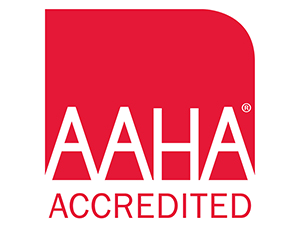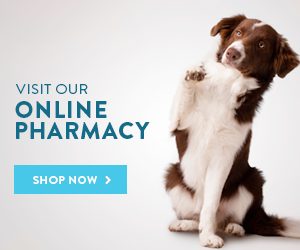
As pet owners, we cherish the joy and companionship our furry friends bring into our lives. However, along with the cuddles and tail wags comes the responsibility of ensuring their safety and wellbeing. Accidents and medical emergencies can happen at any time, and being prepared to handle these situations can make a significant difference in your pet's life. That's why understanding basic first aid for pets is essential for every pet parent.
The initial steps you take in the event of an emergency can stabilize your pet until professional veterinary care is available. From dealing with minor injuries to recognizing signs of a medical emergency, having a fundamental knowledge of first aid for pets is invaluable. In this comprehensive guide, we'll cover important first aid tips, including how to assemble a first aid kit, recognize and respond to emergencies, and the benefits of enrolling in a first aid course. Whether you're at home, on a walk, or away on vacation, being prepared is key to ensuring your pet's safety.
Remember, while first aid can be a lifesaver in many situations, it does not replace professional veterinary care. Always follow up with a visit to your veterinarian or local veterinary emergency hospital to ensure your pet receives the best possible care. Here are some crucial first aid tips that every pet owner should know.
Pets Are Family
Pets, ranging from dogs and cats to smaller animals, are more than just animals; they are family members. Their health and safety are a top priority for every pet parent. Understanding the basics of pet health care and having knowledge of what to do in a first aid situation can be life-saving. Emergencies can range from wounds and low blood sugar to difficulty breathing and signs of heatstroke. Recognizing these signs early and knowing how to respond is crucial.
In the case of an emergency, keeping calm and acting swiftly is vital. Always have the phone numbers of your veterinarian and the National Animal Poison Control Hotline readily available. This preparation, along with a well-stocked first aid kit and basic first aid information, can significantly impact the outcome of a pet emergency.
Furthermore, pet owners should be aware of their pet's normal behavior and body temperature. Any deviation from the norm could indicate a medical emergency. Regular check-ups with your veterinarian also play a crucial role in maintaining your pet's health, as they can help catch and treat potential health issues before they become serious emergencies.
Basic First Aid Kit
Every pet owner should have a basic first aid kit tailored to the needs of their pets. A proper first-aid kit should include items like gauze pads for wrapping wounds or stemming bleeding or putting a splint on broken bones, adhesive tape, a clean cloth, cool water for burns or overheating, warm water for hypothermia, hydrogen peroxide for inducing vomiting under veterinarian guidance, and a thermometer to check your pet's body temperature.
Other essentials include a pet emergency phone list, including the National Animal Poison Control Hotline and the phone numbers of your local veterinarian and veterinary emergency hospital. Also, consider adding a flashlight, tweezers, scissors, a blanket, and a muzzle for dogs, as even the most docile dogs may bite when in pain.
Storing your first aid kit in a cool, dry place and regularly checking to ensure all items are in good condition and within their expiration date is a good idea. Be familiar with the contents of your kit and how to use each item. This preparation can save precious time in the event of an emergency.
Pet First Aid Kit
A pet first aid kit goes beyond the basics of a human first aid kit, including specific items tailored to the unique needs of animals. This should contain styptic powder to stop nail bleeding, saline solution for eye and wound cleaning, and an ice pack for reducing swelling. Additionally, include a soft muzzle to prevent bites during stressful situations and a stretcher (which can be a board or blanket) for transporting injured pets without causing further harm.
Specialized items like a tick remover tool and a bottle of honey or a glucose solution for pets with low blood sugar are also important. If your pet has specific medical needs or allergies, include appropriate medications or supplies as recommended by your veterinarian.
Remember, the key to using a pet first aid kit effectively is familiarity with its contents and their uses. Consider labeling items or organizing them in a way that makes them easy to find in an emergency. Regularly review and restock your kit as needed, especially after any use.
First Aid Course
Enrolling in a first aid course specifically designed for pet owners is a wise investment in your pet's health and safety. The Red Cross and the American Veterinary Medical Association offer courses that cover a wide range of topics, from performing CPR on pets to handling choking emergencies and providing care for wounds.
These courses often include hands-on practice sessions, allowing pet parents to become comfortable with various first-aid techniques under the guidance of professionals. Additionally, many online courses are available, offering flexibility for busy schedules.
Gaining knowledge and confidence through a first aid course can empower you to act decisively and correctly.
Take The Next Step In Ensuring Your Pet's Safety And Well-Being
Don't wait for an emergency to catch you unprepared. Take action today by visiting Laveen Veterinary Center. Discover a wealth of resources and equip yourself with the knowledge and tools needed to handle any situation with confidence. Whether you're looking to assemble a comprehensive pet first aid kit, learn lifesaving CPR techniques, or simply seeking professional advice, Laveen Veterinary Center is your go-to source for all things pet health. Together, we can ensure that you're ready to provide the best care for your pet in any situation. Visit us now and make the well-being of your pet a top priority. Your pet's life may depend on it.
Interested in learning more about the veterinary services at Laveen Veterinary Center? REQUEST AN APPOINTMENT ONLINE or call 602-559-9600 today!


